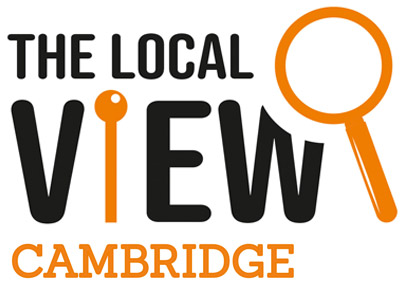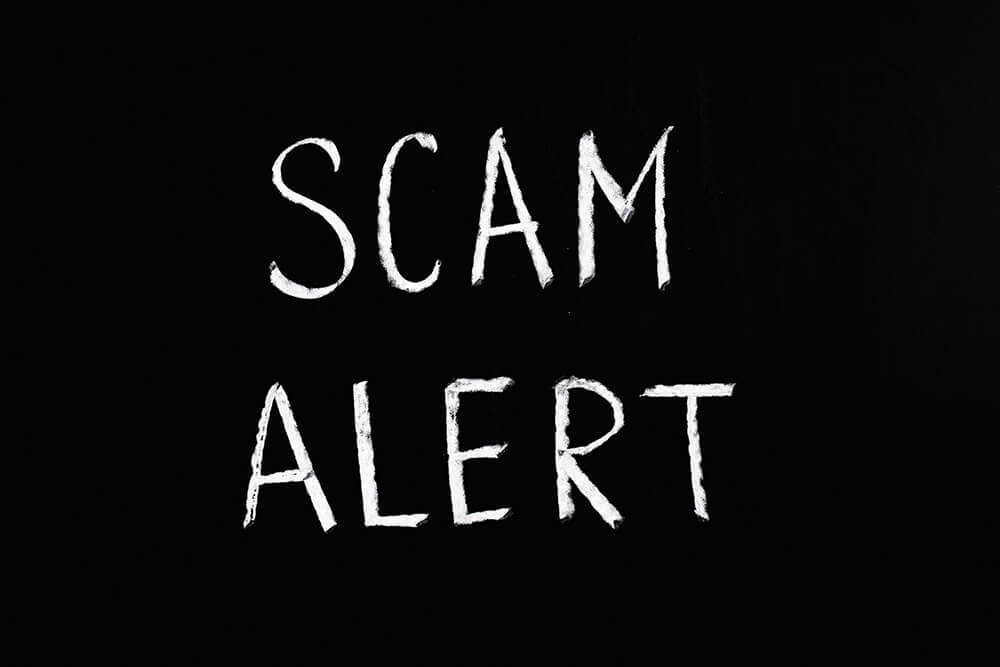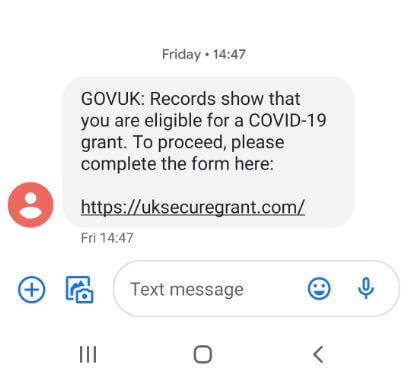Scams are misleading or deceptive practices designed to trick people out of their money or personal details. They can be committed by post, by telephone, on the internet or on the doorstep. You may be familiar with some of the synonyms for scam, such as hoax, swindle, ruse, trick or con. But they all have one thing in common. Scams are fraud and fraud is crime.
As the coronavirus pandemic continues, scammers persist in taking advantage of the fears, confusion and changes in people’s circumstances brought about by the outbreak to defraud people of their money. Here, Cambridgeshire and Peterborough Against Scams Partnership (CAPASP) give examples of common coronavirus scams and tips on how you can spot them and stop them.
Test and Trace Scam
Text and trace scams involve unsolicited contact, usually a cold call by telephone. The caller claims to be from NHS Test and Trace. They state that the resident has been in contact with somebody who has tested positive for coronavirus and that they must therefore take a test. The caller may ask for lots of personal details, giving the impression they are ordering a test to be dispatched. However, they will then ask for card details for a payment.
It is important to note that the coronavirus test is free. The NHS will never ask for any form of payment for the test, nor for any passwords or PINS. They will also never ask you to download anything, ask for details about your bank account, or send someone to your home.
Vaccine Scam
A common version of this scam is a text message or email which explains to the recipient that they are eligible for or have been selected to receive a vaccination. The message includes a link which, when clicked, takes the recipient to a webpage or form. This will usually use NHS branding to appear authentic and will request personal information including payment details, either as a payment for the vaccine or as ‘proof of address’.
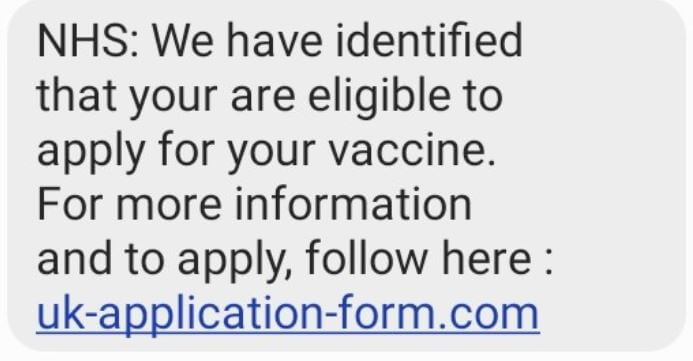
Another variant of the vaccine scam is a cold call with an automated voice. The voice offers the vaccine and requests the recipient to press 1 to confirm they wish to receive it. Pressing a key may result in a high charge made to the phone bill or a connection to someone who is well-rehearsed at persuading you to part with your money.
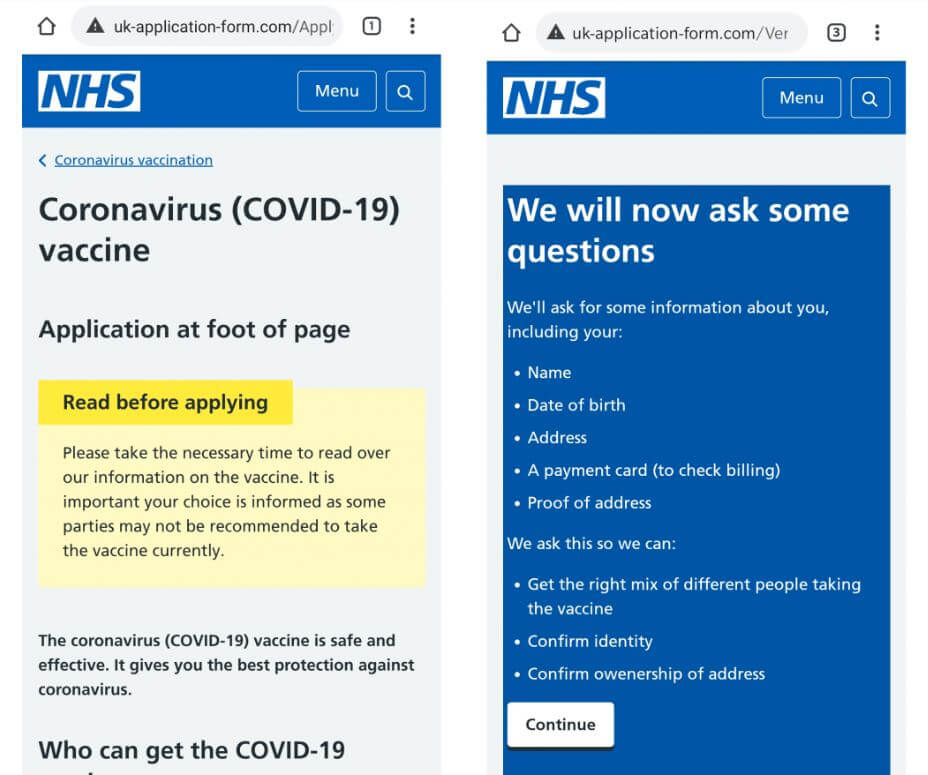
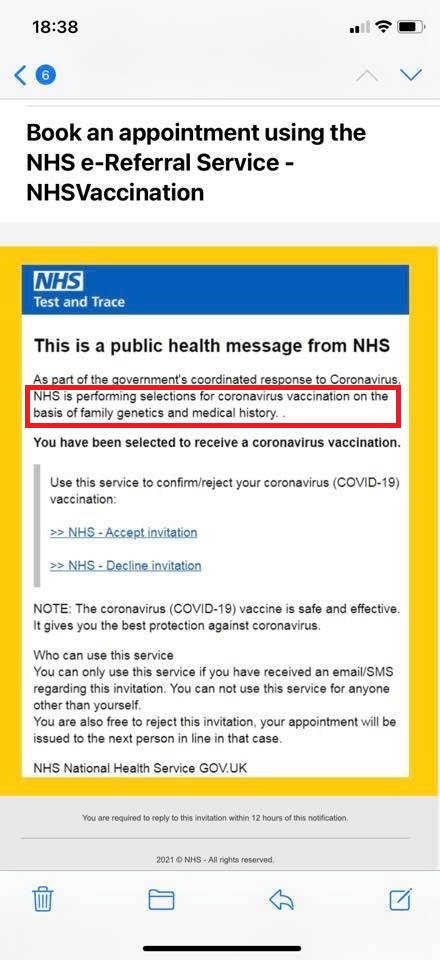
Like the coronavirus test, the Covid-19 vaccine is also free of charge. Your surgery or the NHS will never ask you for bank details in order to receive it. Neither will they ask for any passwords or PINS, or for you to press any numbers on your keypad. They will not ask for documentation to prove your identity, nor will they arrive unannounced at your home to administer the vaccine.
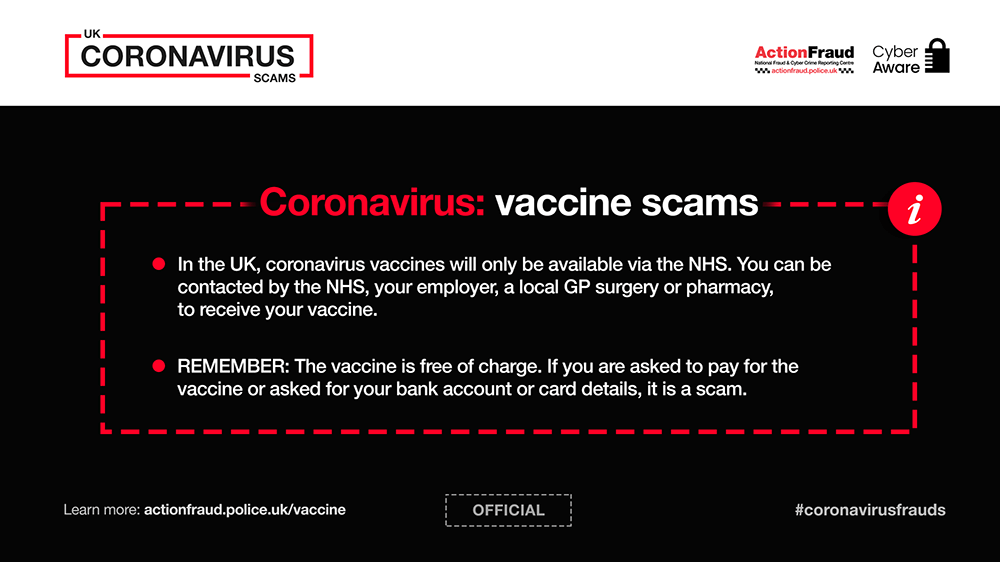
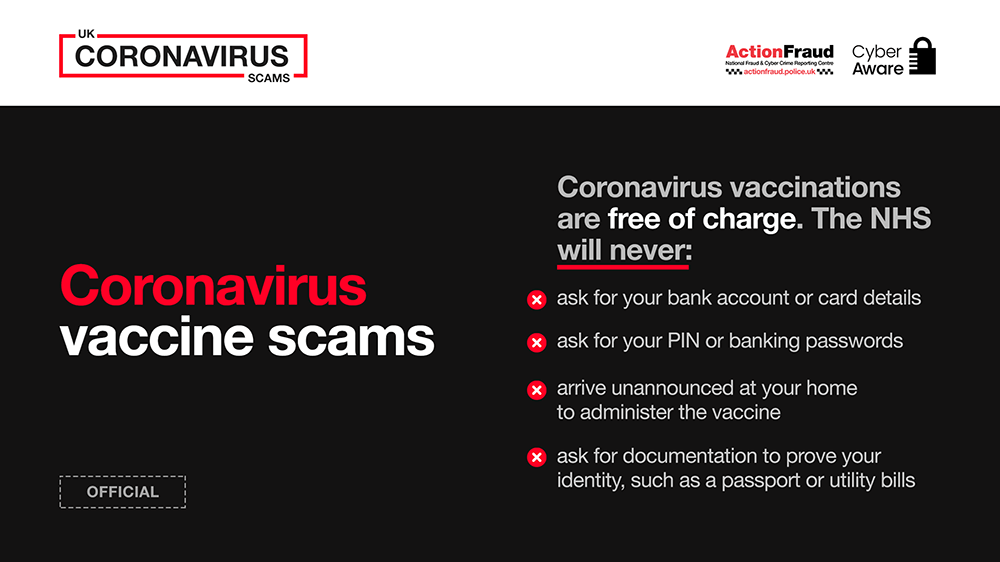
Covid Grant or Tax Relief Scam
These scams entail a message claiming that the recipient is entitled to financial assistance in the form of a grant or some tax relief. Usually these scams take the form of an SMS text message but could also be an email. In each case they will give a link to complete your details, including bank details, to receive the payment.
Key message
Our key message is never to give personal information, card or bank details to anyone contacting you unexpectedly, no matter by what means. Do your own independent research to check if the contact is genuine. If it was by telephone, you should always use a number you know to be correct (e.g. from a bill or statement). Do not use a number the caller gave you. Use a different handset to make the call or wait at least ten minutes for the line to clear. This is because the scammer can remain on the line, even playing a dialling tone and putting a different voice on the line to make you think you are speaking to the organisation in question.
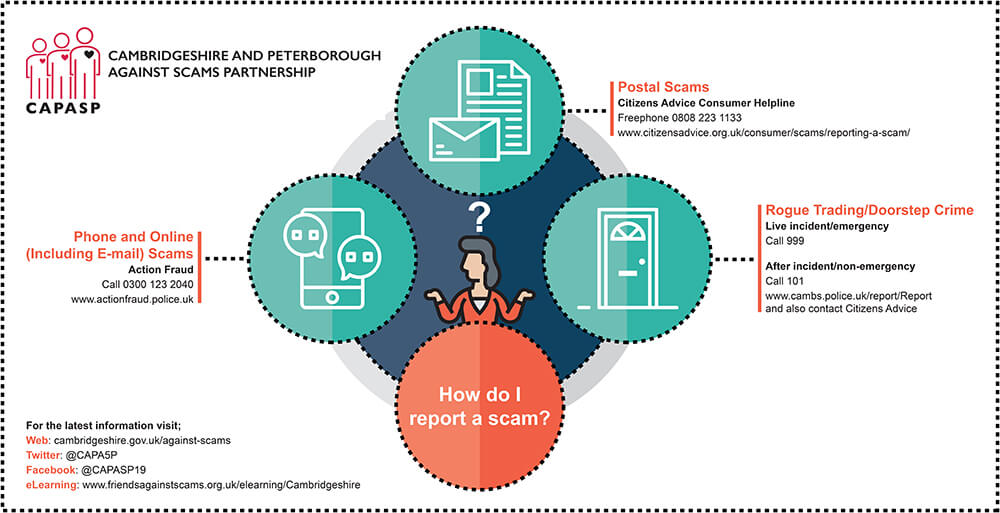
Forward suspicious emails to report@phishing.gov.uk and suspicious texts to 7726.
You can learn more about scams by completing the Friends Against Scams short e-learning course at www.friendsagainstscams.org.uk/elearning/Cambridgeshire
Visit our website for free scams prevention resources.
If you would like to receive CAPASP’s monthly newsletter and interim scam alerts direct to your inbox, please email against-scams@cambridgeshire.gov.uk
